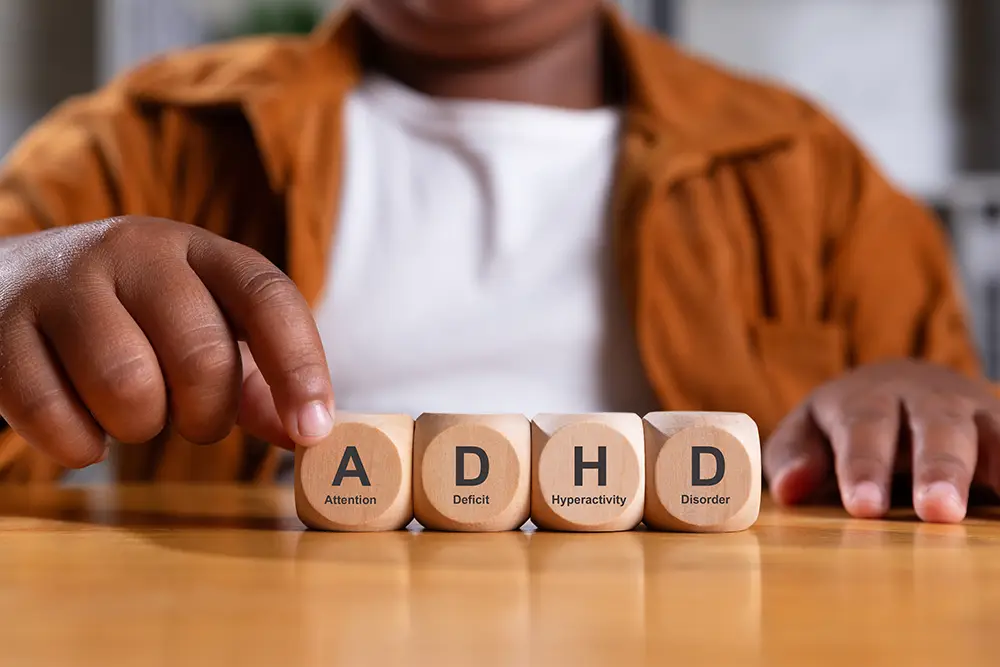From understanding to action: Practical tips for supporting children with ADHD
October is ADHD Awareness Month, a time to highlight the realities, challenges and unique strengths of living with attention-deficit/hyperactivity disorder. But it’s important to remember that ADHD affects individuals and families every day of the year.
Recent data shows that nearly 7 million children in the U.S. aged 3–17 have been diagnosed with ADHD — an increase of 1 million since 2016. Additionally, 78% of these children experience at least one co-occurring condition such as anxiety, depression or learning disorders.
With so many pressures and changes in a young person’s life, how can families recognize the signs of ADHD?
Diagnosis begins with a visit to a health care provider — this could be a pediatrician, psychologist, psychiatrist, neurologist, clinical social worker or licensed counselor. The process typically includes clinical evaluations, behavioral assessments and standardized questionnaires.
Once diagnosed, treatment plans are developed, which usually include recommended medication as well as behavioral counseling referrals, both of which are up to parents to decide, but have proven successful individually and in tandem This is a crucial time for caregivers to educate themselves about ADHD and its effects on learning, behavior and social interactions.
Creating a supportive environment with effective tools and strategies is key. Two Youth Villages Georgia clinical experts — Clinical Supervisor Kristol Daley and Clinical Program Manager Razi Abraham — shared the following practical advice and tips for families navigating this journey.
Build structure and routine
- Use visual schedules and checklists to help children stay on track.
- Break tasks into smaller, manageable steps.
- Encourage routine-building, especially with older kids, by involving them in creating their own schedules.
Time management techniques
- Try the Pomodoro Technique: 25-minute work blocks followed by short breaks.
- Use timers to help children stay focused and know when to pause.
- Develop a weekly schedule to provide predictability and structure.
Body doubling
- Co-regulate by doing tasks alongside your child.
- For older youth, this could mean working in the same space with a friend or parent—even silently.
- Explain that having someone else present while doing tasks is for support, not surveillance.
Mindfulness and regulation
- Practice mindfulness exercises and journaling to help calm racing thoughts.
- Encourage physical activity to manage hyperactivity and improve sleep.
- Practice breathing exercises that reduce anxiety and help center thoughts.
Sleep hygiene
- Limit screen time before bed.
- Establish calming bedtime routines with dim lighting, music or essential oils.
- Avoid daytime naps and promote physical activity earlier in the day.
Nutrition and physical health
- Monitor sugar intake and encourage balanced meals.
- Ensure adequate sleep and exercise, which are closely tied to mental health.
- Take family bike rides, brisk walks or play simple outdoors games like tag.
Screen time
- Limit exposure to fast-paced, short videos and endless scrolling on social media.
- Use screen time as a reward – tie to task completion, physical activity or chores.
- Offer engaging alternatives, such as puzzles, board games, outdoor play or crafts.
As we observe ADHD Awareness Month, let’s continue to support youth and families with empathy, education and practical tools. Whether it’s through structured routines, mindfulness or simply understanding the unique strengths of ADHD individuals, we all have a role to play in creating a more inclusive and supportive environment.
Kristol Daley is a licensed program expert with Youth Villages’ Inner Harbour residential program for youth and adolescents in Douglasville, Georgia. Kristol initially started as a clinical liaison and served as a counselor and clinical lead during her time at Youth Villages. She enjoys assisting the counselors she works with to better serve the youth and families needing support and healing. She is the mother of two girls, whom she enjoys spending her free time with.
Razi Abraham, LCSW, is a licensed program expert at Youth Villages’ Inner Harbour residential program for youth and adolescents in Douglasville, Georgia. Throughout the past eight years with the organization, Razi continues to find joy in serving youth and families and inspiring other counselors and professional staff to serve with compassion and care.

